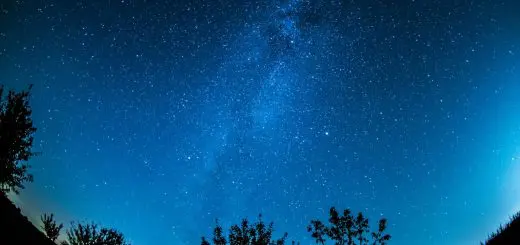Poseidon: The God of the Seas in Greek Mythology

Looking for more amazing products? Check out our online store and explore our collection here! Happy shopping!
Before diving in, please note: This post is for informational purposes only. If you’d like to know more about how we approach topics, feel free to check out our friendly Disclaimer Page.
Hey there, amazing readers! 
We’re committed to delivering quality posts, and your support (even just sticking around despite the ads) means everything to us. So, bear with us, and thanks for helping us keep the good vibes rolling. Now, on to the fun stuff!
TRANSLATE BUTTON AT THE END OF THE ARTICLE
A Quick Overview
When we think about Greek mythology, names like Zeus and Hades often come to mind.
But let’s not forget about Poseidon, the mighty god of the seas!
He’s not just a watery deity; he’s a complex figure whose influence extends beyond the waves.
Today, I’m excited to dive into the ocean of stories surrounding Poseidon, exploring his origins, his role in myths, and how he shaped Greek culture.
So grab your metaphorical life jacket, and let’s set sail on this enlightening journey!
Introduction to Poseidon: The Mighty Sea God of Greece
Poseidon stands as one of the most important and powerful gods in the Greek pantheon.
He ruled over the oceans, storms, and earthquakes—a true titan among gods!
Often depicted with a majestic beard and a robust physique, Poseidon was someone who commanded respect and fear.
He was the second son of Cronus and Rhea, following Zeus.
But while Zeus took charge of the sky and Hades ruled the underworld, Poseidon claimed the vast, mysterious waters of the earth.
Greek sailors revered him, praying for safe voyages and bountiful catches.
Picture this: a sailor, hands clasped, eyes closed, murmuring a prayer to Poseidon before casting off into the rough seas.
The ocean was both a source of life and a treacherous force, and Poseidon embodied that duality magnificently.
He was seen as a protector and a punisher, depending on how one treated the ocean.
Moreover, Poseidon was often associated with horses.
You might wonder why a sea god is linked to these majestic land creatures.
Well, myth tells us that he created the first horse, showing his power extends beyond the water.
Whether it was calming storms or creating earthquakes, Poseidon’s influence was felt far and wide.
The Birth of Poseidon: A Tale of Divine Origins
The story of Poseidon’s birth is just as captivating as his character.
He was born to Cronus and Rhea, who were titans in their own right.
Cronus, fearing a prophecy that one of his children would overthrow him, devoured his offspring.
Rhea, heartbroken by the loss of her children, devised a clever plan.
When it came time for Poseidon to be born, she hid him away in a cave on the island of Crete, wrapping a stone in swaddling clothes and giving it to Cronus instead.
Once Poseidon grew up, he joined forces with his siblings—Zeus, Hades, Hera, Demeter, and Hestia—to defeat Cronus.
They took him down in an epic battle known as the Titanomachy, which was no small feat.
Once they emerged victorious, the three brothers drew lots to divide the universe.
Zeus claimed the sky, Hades claimed the underworld, and Poseidon, with a mighty flourish, took command of the seas.
Can you imagine the excitement in that moment?
Three powerful gods deciding their fates!
Poseidon, now a ruler of the oceans, was ready to make waves—literally and figuratively.
Poseidon’s Role in Greek Mythology and Culture
Poseidon was intricately woven into the fabric of Greek mythology and daily life.
Sailors prayed to him before embarking on voyages, believing his favor would bring calm waters.
Farmers, too, honored him, as they relied on the rains that fell from stormy skies.
His power over the ocean and storms made him essential for agriculture and trade.
In city-states like Athens, however, Poseidon faced competition from Athena.
The famous myth of the contest for the city’s patronage tells us that Poseidon struck the ground with his trident, creating a saltwater spring.
In contrast, Athena offered the olive tree, symbolizing peace and prosperity.
The citizens chose Athena, but Poseidon’s fury was not easily quelled.
He unleashed storms and floods, proving that he was not one to be crossed lightly.
Moreover, mythological stories often depict Poseidon as a vengeful god.
When he was disrespected, the seas would rage and ships would capsize.
His presence in the myths reveals the Greeks’ deep understanding of nature’s unpredictability.
Whether it was a calm day at sea or a sudden tempest, Poseidon’s moods mirrored those of the ocean itself.
The Symbols and Attributes of Poseidon Explained
Poseidon is often depicted with distinct symbols that tell us much about his character.
The most recognizable is, of course, the trident.
This three-pronged spear symbolizes his power over the seas and his ability to create storms.
When he brandished it, it was said he could bring forth powerful waves or calm turbulent waters.
Other symbols associated with Poseidon include:
Horses: As we discussed earlier, Poseidon is the god who gave birth to horses.
They symbolize his dominion over both land and sea.
Dolphins: These creatures, often seen as friendly and intelligent, were considered sacred to Poseidon.
They represent his benevolent side and connection to marine life.
Seaweed and Coral: These elements of the sea highlight Poseidon’s nurturing aspects, depicting him as a guardian of marine ecosystems.
The Bull: Symbolizing strength and fertility, the bull connects Poseidon to agriculture and the earth.
These attributes not only define who Poseidon is but also show how multifaceted he was.
He was both a protector and a punisher, revealing the complexities of nature itself.
The Trident: Poseidon’s Iconic Weapon of Power
Ah, the trident!
It’s not just a fancy pitchfork; it’s Poseidon’s signature weapon.
Crafted by the Cyclopes during the Titanomachy, this formidable instrument was a symbol of his authority over the sea.
With it in hand, Poseidon could create storms, cause earthquakes, and even shatter ships.
It was said that at the mere flick of his wrist, he could transform calm waters into chaotic waves.
But the trident held more than just destructive power.
It also represented creation.
Just as Poseidon could initiate storms, he could also calm them.
The Greeks believed that when Poseidon plunged his trident into the ocean, he could summon forth new islands, shape coastlines, and even create springs of fresh water.
This dual nature of the trident reflects the unpredictable character of the sea itself.
Some days, it might be a gentle giant, while on others, it could turn into a ferocious beast.
The trident serves as a reminder of the balance between creation and destruction, a theme prevalent in many of Poseidon’s stories.
Poseidon’s Family: Siblings, Children, and Relationships
Poseidon’s relationships add depth to his character.
He had powerful siblings, including Zeus and Hades, who ruled other realms of existence.
This sibling dynamic often set the stage for conflict.
While they divided the cosmos fairly, tensions arose, especially when it came to worship and respect among mortals.
Poseidon had a plethora of offspring, many of whom were heroes and creatures of legend.
His most notable children include:
Theseus: A legendary hero known for slaying the Minotaur, Theseus had Poseidon as a father, which granted him divine favor.
Polyphemus: The infamous Cyclops featured in Homer’s "Odyssey," Polyphemus harbored a grudge against Odysseus for blinding him.
Triton: Poseidon’s messenger, Triton is often depicted as a merman.
He blew on a conch shell to calm waves or summon storms.
In terms of relationships, Poseidon had several romantic entanglements.
His most famous partner was Amphitrite, the queen of the sea.
Their union brought forth Triton and other sea deities.
Poseidon’s many affairs often led to jealousy and conflict among other gods, showcasing his tempestuous side.
This web of relationships illustrates Poseidon’s importance in Greek mythology, enriching the narratives surrounding him and giving rise to various myths and legends.
Famous Myths Featuring Poseidon: A Sea of Stories
Poseidon’s tales are numerous, each showcasing different facets of his character.
One of the most famous is the story of the Trojan War.
When the Greeks sought to build the city of Troy, they sought Poseidon’s assistance.
However, when his offer of a sea monster to destroy the city was ignored, Poseidon unleashed fury upon the Greek fleet, showing that disrespect had consequences.
Another thrilling tale involves the hero Odysseus.
After blinding Poseidon’s son Polyphemus, Odysseus found himself at the mercy of the god’s wrath.
Poseidon created storms that delayed Odysseus’ return home, showcasing how personal vendettas could affect mortals on grand scales.
Then there’s the story of the Athenians, who angered Poseidon during the contest with Athena.
His response was to flood the city, reminding everyone just how powerful the ocean god could be.
This tale serves as a metaphor for the importance of respect towards nature and its deities.
These stories not only entertain but also provide moral lessons about humility, respect, and the unpredictability of divine wrath.
Poseidon is a reminder of the balance between man and nature, and the consequences of our actions.
The Ocean and Earthquake God: Poseidon’s Dual Nature
Poseidon’s identity is remarkably dual.
As the god of the sea, he’s often depicted as a benevolent protector of sailors and marine life.
However, he’s also the god of earthquakes, which adds a twist to his character.
This duality shows how nature can be nurturing one moment and destructive the next.
During calmer times, Poseidon would bless fishermen with bountiful catches and grant sailors safe travels.
But when angered, he unleashed storms and earthquakes, reminding everyone of nature’s power.
It’s this balance that makes him a fascinating figure in Greek mythology.
The earth-shaking aspect of Poseidon is often depicted in myths where he causes the ground to tremble or split open.
Ancient Greeks associated earthquakes with his moods.
The ground shaking was seen as a direct reflection of his discontent.
This duality resonates with us even today.
Just like Poseidon, our moods can be unpredictable.
We can be calm and nurturing one moment and then get overwhelmed by stress or anger the next.
Poseidon serves as a metaphor for the human experience, illustrating the complexities of our emotions.
Temples and Worship: How Ancient Greeks Honored Poseidon
Worshipping Poseidon took many forms in ancient Greece.
Temples dedicated to him were built along coastlines, ensuring that sailors could offer their prayers before venturing into the open waters.
One of the most famous temples was in Sounion, overlooking the Aegean Sea.
It stood as a testament to Poseidon’s significance among maritime communities.
Rituals often included sacrifices, which could range from animals to offerings of fish.
The Greeks celebrated the Panhellenic festival of the Isthmian Games in his honor, which featured athletic competitions and cultural events.
This festival underscored Poseidon’s importance in both the spiritual and social spheres of Greek life.
During ceremonies, priests would invoke Poseidon’s name, calling on him for protection and favor.
The act of pouring libations into the sea was a common ritual, symbolizing a direct connection with the god.
The reverence for Poseidon extended beyond just formal worship.
Everyday sailors often carried small shrines or tokens representing him, believing that these would keep them safe during their voyages.
This personal connection with the divine highlights how integral Poseidon was to the lives of those who relied on the sea.
Poseidon in Art: Representations Across the Ages
Poseidon’s influence is visible in countless works of art, sculptures, and literature throughout history.
Ancient Greek artists depicted him with a strong, muscular form, emphasized by flowing hair and a beard, embodying both strength and majesty.
The iconic image of him wielding his trident is instantly recognizable, symbolizing his authority over the seas.
During the Renaissance, artists like Michelangelo and Raphael drew inspiration from Poseidon, reinterpreting him in their works.
Paintings often captured the drama of his temperament—storms churning the sea or serene moments where he blesses sailors.
In modern times, Poseidon remains a popular figure in various media.
Films, books, and video games often take creative liberties with his character, adapting him for contemporary audiences.
For instance, in Rick Riordan’s "Percy Jackson" series, Poseidon appears as a relatable father figure, making mythology engaging for younger generations.
Poseidon’s representations underscore the continuity of his influence.
His character evolves, yet the core essence remains—he is a powerful force of nature, revered and respected.
The Legacy of Poseidon: Influence on Modern Culture
Poseidon’s legacy is felt even today, illustrating the enduring nature of mythology.
His name is synonymous with the ocean, evident in literature, film, and even names of businesses.
From marine conservation efforts to the naming of naval vessels, his influence extends into various aspects of modern life.
Literature has embraced Poseidon, with countless interpretations and adaptations.
Writers often use him as a metaphor for the unpredictability of nature or the complexities of the human experience.
The movie industry has also had its fair share of Poseidon portrayals.
Films like "Clash of the Titans" and the "Percy Jackson" series have brought him to life for modern audiences, making his stories accessible and entertaining.
In addition, Poseidon inspires many marine-themed events and festivals worldwide.
Coastal communities often celebrate their connection to the sea, honoring the god who has shaped their lives for centuries.
Overall, Poseidon serves as a timeless reminder of the power of the oceans and the respect we must hold for nature.
His legacy continues to inspire and resonate with people, proving that ancient stories can still hold value today.
Conclusion: Celebrating Poseidon’s Enduring Importance Today
As we wrap up our exploration of Poseidon, it’s clear that he is much more than just the god of the seas.
He embodies the majesty and unpredictability of nature, serving as a reminder of our connection to the world around us.
From his divine origins and complex family dynamics to his dual nature as a protector and a punisher, Poseidon’s character reflects the multifaceted relationship that humanity has with the ocean.
His stories, deeply ingrained in Greek mythology, offer valuable lessons about respect, humility, and the balance between creation and destruction.
The reverence shown to him by ancient Greeks still resonates today, as we navigate our own relationship with nature.
Whether through art, literature, or marine conservation efforts, Poseidon’s legacy continues to inspire and remind us of the importance of embracing both the calm and stormy seas of life.
So next time you find yourself near the ocean, take a moment to appreciate Poseidon’s enduring presence.
After all, as the waves crash and the tides ebb, he’s still out there, watching over us from the depths of the sea!

The Enlightenment Journey is a remarkable collection of writings authored by a distinguished group of experts in the fields of spirituality, new age, and esoteric knowledge.
This anthology features a diverse assembly of well-experienced authors who bring their profound insights and credible perspectives to the forefront.
Each contributor possesses a wealth of knowledge and wisdom, making them authorities in their respective domains.
Together, they offer readers a transformative journey into the realms of spiritual growth, self-discovery, and esoteric enlightenment.
The Enlightenment Journey is a testament to the collective expertise of these luminaries, providing readers with a rich tapestry of ideas and information to illuminate their spiritual path.
Our Diverse Expertise
While our primary focus is on spirituality and esotericism, we are equally passionate about exploring a wide range of other topics and niches 

To ensure we provide the most accurate and valuable insights, we collaborate with trusted experts in their respective domains 
Our blog originally focused on spirituality and metaphysics, but we’ve since expanded to cover a wide range of niches. Don’t worry—we continue to publish a lot of articles on spirituality! Frequently visit our blog to explore our diverse content and stay tuned for more insightful reads.
Hey there, amazing reader! 
Check out our store here and take a peek at some of our featured products below! Thanks for being awesome!













